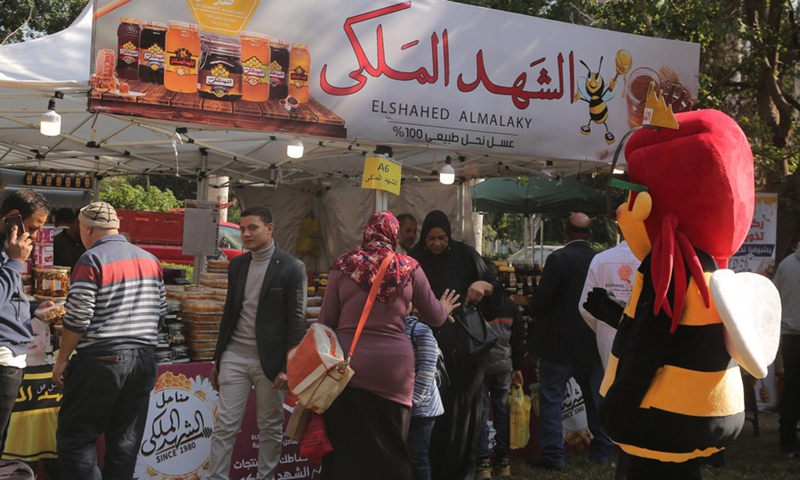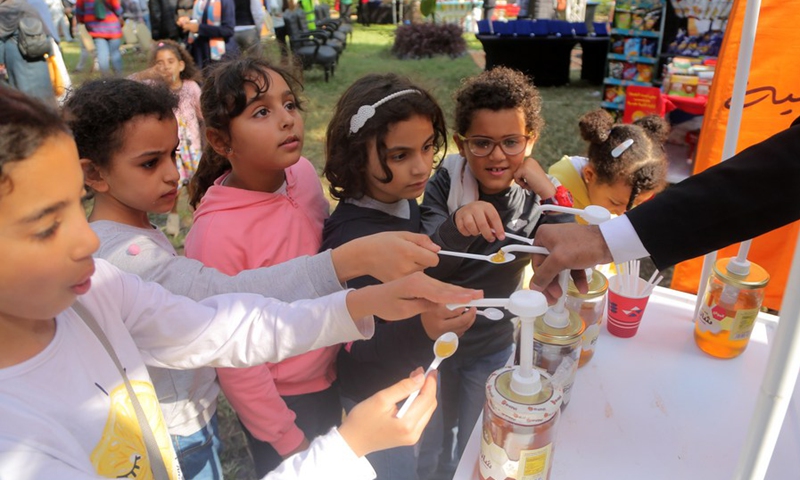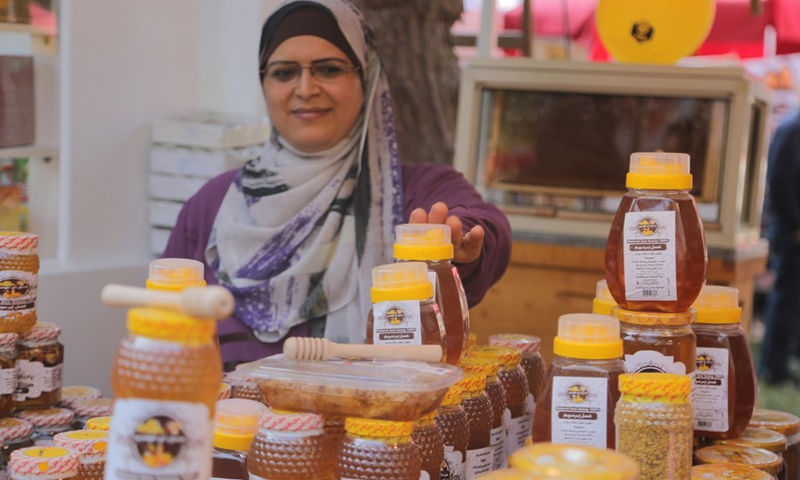
A vendor pours a spoon of honey to a visitor for tasting during the 3rd Egyptian Honey Festival in Giza, Egypt, Nov. 24, 2021.(Photo: Xinhua)

People visit a honey booth during the 3rd Egyptian Honey Festival in Giza, Egypt, Nov. 24, 2021.(Photo: Xinhua)

Children taste honey during the 3rd Egyptian Honey Festival in Giza, Egypt, Nov. 24, 2021.(Photo: Xinhua)

A honey vendor displays her products during the 3rd Egyptian Honey Festival in Giza, Egypt, Nov. 24, 2021.(Photo: Xinhua)
The third edition of the Egyptian Honey Festival, organized by the Arab Beekeepers Union, started on Wednesday at the Orman Botanical Garden in Giza Province near the capital Cairo, providing new marketing and exporting opportunities for honey producers, according to a statement by the country's Ministry of Agriculture and Land Reclamation.
Titled Egypt's Liquid Gold, the five-day festival has attracted more than 130 exhibitors from the most prestigious Egyptian and Arab companies of Saudi Arabia, the United Arab Emirates, Libya and Lebanon.
"The festival builds the connection between honey producers and both local and international organizations interested in food industries, including banks, export councils and commerce chambers," Alaa Azoz, head of the agricultural guidance with the ministry of agriculture, told Xinhua.
The beekeepers' bodies attending the event are expected to discuss means of advancing the honey industry and removing obstacles to exporting Egyptian honey, Azoz said.
Egyptian honey boasts a good reputation in most countries and targets doubled exports, he added.
Fathy Behari, chairman of the Arab Beekeepers Union and president of the organizing committee of the festival, noted that the beekeeping sector in Egypt employs more than 25,000 families.
Egypt produces 15,000 tons of honey annually, out of which 2,500 tons is exported to other Arab countries and the United States, according to Behari.
"Our main goal is to encourage the culture of beekeeping among civil society," he said.
Sameh al-Asalway, whose company participates in the festival every year, told Xinhua that his family has been working in the beekeeping industry since 1900.
He displayed mountain, citrus, flowers and lucerne honey at the festival, saying the main use of honey is in cooking and baking but it could also benefit health when drunk with water.
It is worth noting that Al-Asalway sells his honey at the same prices as he did the previous year, despite the economic conditions from the COVID-19 pandemic, with flower honey at 3.8 U.S. dollars per kg and anise honey at five dollars per kg.
But "most of the Egyptian customers buy citrus honey, especially in the winter," Al-Asalway said, adding one kg of citrus honey costs about four dollars.
Mohamed Soliman, a 40-year-old lawyer who visits the festival with his family, referred to the diabetic honey as a good replacement for sugar.
"I wish the ministry of agriculture can organize the festival three times every year because the prices are much cheaper than the ordinary stores," said Soliman, adding that at the festival customers can find at least 50 types of honey and children can acquire new knowledge about beekeeping through drawing activities.
